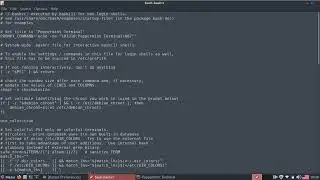Austin Symphonic Band Performing Midway March
Austin Symphonic Band. January 28, 2024 concert at the Connally HS Performing Arts Center in Austin, TX. ASB performing Midway March by John Williams (trans. Paul Lavender). [NOTE: Click 'more' to read the program notes.] Assistant Music Director Bill Haehnel conducting. "Sea Songs" Concert.
Video and Sound Production: Eddie Jennings
From the program notes written by David Cross:
Midway March (1976)
John Williams (b. 1932)
Transcribed for band by Paul Lavender
Program note from the composer:
The Battle of Midway was one of the great events in the history of the United States Navy. It was wonderful to see the recent reunion of American and Japanese veterans joining in peace and warm friendship, as they’ve searched to locate the site of the struggle. When I was young, I remember my father recounting to me that, during his childhood, he’d heard and seen John Philip Sousa conduct his famous band. And so, when the opportunity emerged to compose music for the film Midway, I tried to write an orchestral march that would be American in spirit, with a jazzy nautical swagger, (that) would fit squarely in the tradition of the great American marches that I’ve loved since my youth.
The Battle of Midway was a victory that some say was the turning point during World War II. The jaunty nature of the march celebrates the victory but belies the high casualty cost of the battle. The victory was so important to American morale that the name found its way into the lexicon of the country. Chicago’s Midway Airport, for example, was named for the battle. Key to the victory was the breaking of the Japanese Naval encryption codes. The war had been going badly for the U.S., and the Japanese planned to deliver a devastating blow to finish off the U.S. fleet at Midway. However, due to the U.S. Signals Intelligence breaking the Japanese encryption code, the U.S. was able to plan a counterattack that led to eventual victory.
The march was composed in 1976 as part of the soundtrack for an epic movie. Despite its big-name cast, the movie was not a smashing success, but in June 1992, a more successful re-edit of the extended version aired on the CBS network commemorating the 50th anniversary of the Battle of Midway. Regardless of the success of the film, the score produced one of Williams’s most popular marches.
Listen for:
• A swinging groove with unexpected kicks on beats 2 and 4.
• A full-fledged Irish reel in the center section with snare drum soloist.
• Spirited counter lines in the low brass.
• Key changes in the climactic ending.































